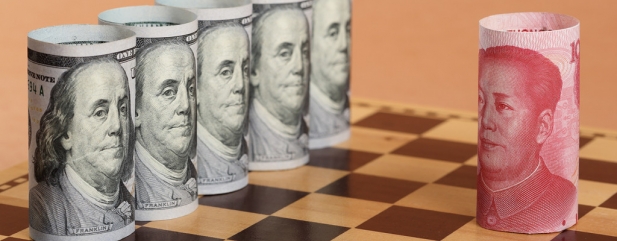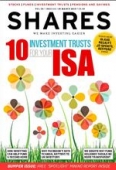Archived article
Please note that tax, investment, pension and ISA rules can change and the information and any views contained in this article may now be inaccurate.
This is what protectionism means for the markets

Hopes are growing that talks between the US and China can avert a trade war after the threat of tit-for-tat action last week saw markets tumble to their lowest levels in 12 months.
Investors fear that a more protectionist stance, reflected in the imposition of tariffs on imports of certain products, will undermine global economic growth and, in turn, depress corporate profits.
Shares were also depressed by a 0.25% bump in US interest rates (21 Mar), and the impact on the tech sector of the Facebook data scandal.
By close on Friday 23 March the FTSE All-World index had fallen 4.4% through the course of a bruising week.
WHAT HAS HAPPENED SO FAR AND WHY?
On 1 March US president Donald Trump announced tariffs on imports of steel and aluminium; and on 2 March he tweeted ‘trade wars are good and easy to win’.
The resignation on 6 March of key economic adviser Gary Cohn removed a big proponent of free trade from the administration.
Trump subsequently held out the possibility for exemptions for the likes of Canada, Mexico and the EU.
Then on 22 March Trump revealed the proposed imposition of tariffs on $60bn worth of Chinese imports in response to the alleged theft of intellectual property.
China pledged to ‘fight to the end’ in any trade war although its own $3bn tariff plan looked a fairly measured response.
WHAT IS THE LIKELY IMPACT?
Investment bank UBS reckons developments to date should be kept in perspective. ‘While not positive for market sentiment, we view the tariffs as being more relevant for individual stocks than a fundamentally major negative impact for the market overall,’ it comments.
Arguably China, as an export-driven economy, has more to lose in this situation. (TS)
Expert view – Walter Price, senior portfolio manager at Allianz Global Investors
‘For years the Chinese have let their state-owned companies produce and sell products without regard to other countries’ economies. The US had to address this issue; it was an unsustainable transfer of wealth to China.
‘As a result, the US economy should grow faster than other developed economies as these imbalances are rectified.
‘I think the markets will remain choppy until investors feel that global growth will continue despite these changes in trade.
‘We have already seen Chinese solar companies propose plants in the US, and a Taiwanese supplier to Apple start a plant in Wisconsin. We will see more of this over the next few years.’
Important information:
These articles are provided by Shares magazine which is published by AJ Bell Media, a part of AJ Bell. Shares is not written by AJ Bell.
Shares is provided for your general information and use and is not a personal recommendation to invest. It is not intended to be relied upon by you in making or not making any investment decisions. The investments referred to in these articles will not be suitable for all investors. If in doubt please seek appropriate independent financial advice.
Investors acting on the information in these articles do so at their own risk and AJ Bell Media and its staff do not accept liability for losses suffered by investors as a result of their investment decisions.

 magazine
magazine








